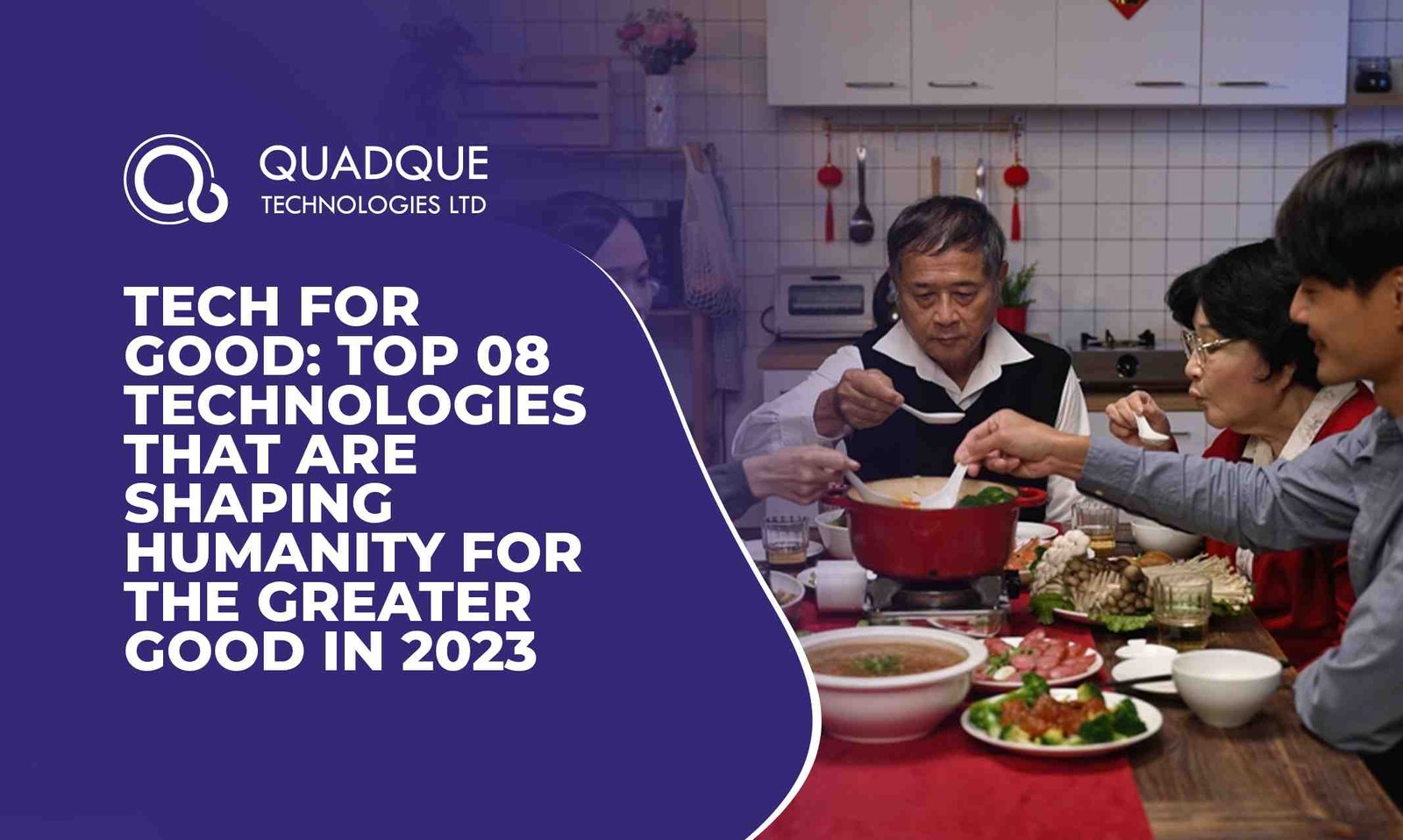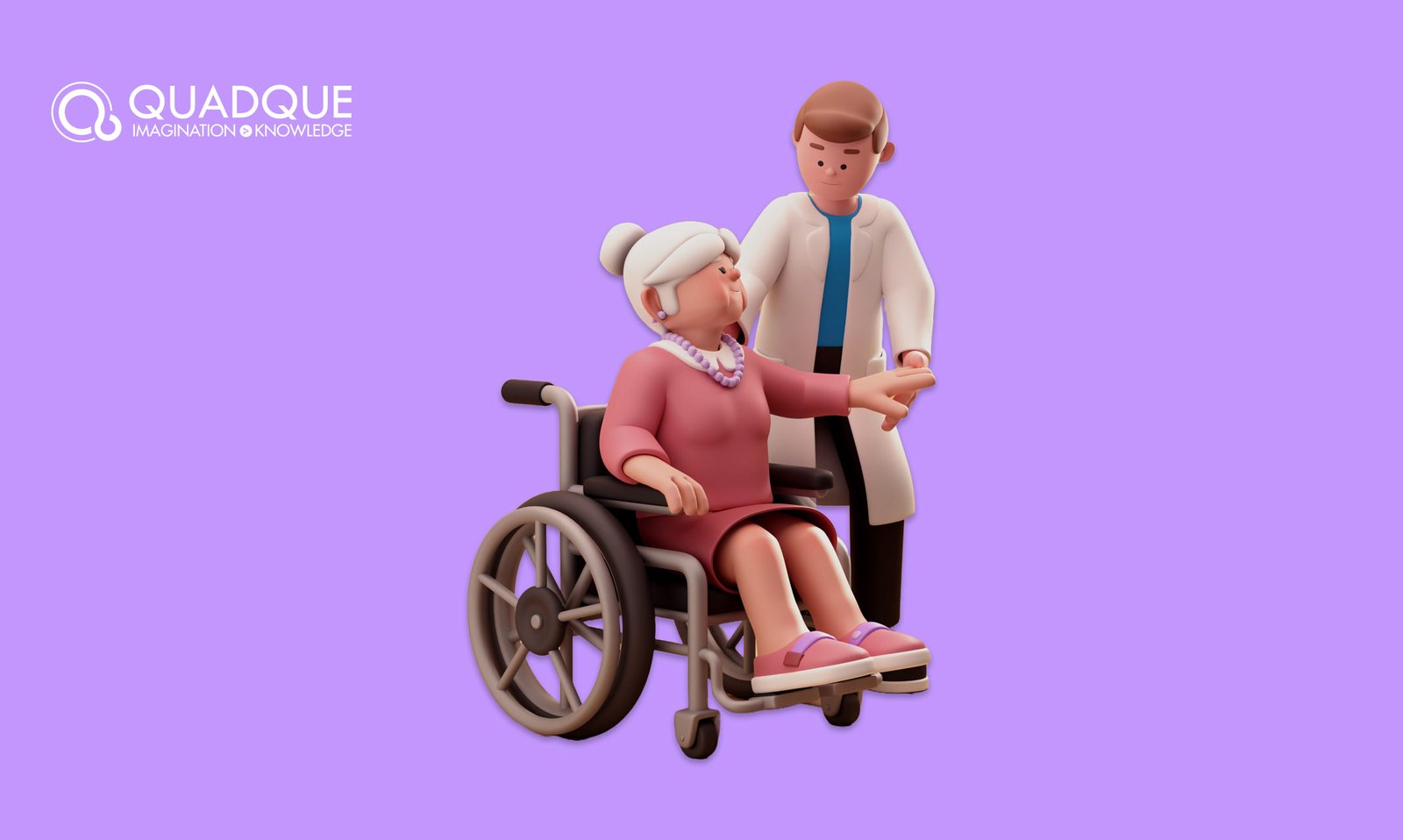
Top Strategic Technology Trends for 2023
Human civilization has developed immensely thanks to the rapid evolution of modern technologies. Technology has its applications everywhere around us in the 21st century. From healthcare to social media marketing, we can see the marvelous contributions of different technologies. Today, we’re going to discuss the “Tech for Good” concept and the fascinating benefits of modern technologies. So let’s take a look!
What is technology for good?
Tech for good is a term used to describe the application of technology to improve the quality of life and address social challenges. The technological advancements of the past few decades have dramatically changed the world we live in. Technology has revolutionized almost every aspect of human life. Unfortunately, there are some negative effects of this revolution. However, there are tremendous benefits to various technologies. The potential for technology to make a positive impact on society has increased significantly in recent years. According to a recent report by Omdia, experts predict that the global revenues of AI software will reach an amazing $100 billion by 2025. The rising popularity of software platforms to solve common organizational and business problems is just one of the many examples of this phenomenon.
Top 8 Technologies That Are Shaping Humanity for the Greater Good in 2023
Let’s take a quick look at the top eight technologies that are shaping human civilization with their positive impact.
1. Artificial Intelligence (AI)
AI is a rapidly growing technology that has the potential to revolutionize the way we live, work and communicate. AI can be used to tackle some of the world’s biggest challenges, such as those in business, healthcare and project management. AI-powered tools can help automate tasks and improve access to education and information. The quick rise of platforms like OpenAI in 2022 shows the importance of AI. Even tech giants like Google are now investing heavily in AI.
2. Internet of Things (IoT)
IoT is a network of interconnected devices that can collect and exchange data. This technology is being used in a variety of applications, including smart homes, smart cities and industries. The IoT has the potential to revolutionize how businesses work. It can also make organizational processes faster and more secure. IoT devices like the Google Home Voice Controller and Amazon Echo Plus Voice Controller are also making our everyday lives easier and more convenient.
3. Virtual and Augmented Reality (VR/AR)
VR and AR are innovative technologies that allow users to experience and interact with digital content in exciting ways. These technologies can transform education, digital marketing and entertainment. Popular platforms like Instagram and Facebook have already implemented AR features. This offers online businesses newer and more creative ways to promote their offerings. Consumers now also have access to exciting AR devices like Google Glass.
4. Blockchain
Blockchain is a decentralized and secure technology that is transforming the process of data and information transfer. This technology has already been used to create digital currencies like Bitcoin. Blockchain now has diverse applications in the financial sector. However, its potential goes far beyond that. Blockchain can be used to improve supply chain management, secure medical records and better protect sensitive information.
5. 5G
5G is the next generation of mobile network technology that promises to bring faster and more reliable internet access. 5G doesn’t only mean faster internet. This network technology will be integrated with autonomous vehicles, the Internet of Things and other platforms in the coming years. Several countries, like the USA and China, have already established 5G infrastructures. We will see its widespread implementation and benefits very soon.
6. Renewable Energy
Renewable energy technologies such as solar, wind and hydropower are crucial in reducing our dependence on non-renewable energy sources. These technologies are also playing an important role in mitigating the effects of climate change. Renewable energy technologies are becoming increasingly accessible and cost-effective. As a result, people from less developed nations now have easy access to clean and sustainable energy.
7. Robotics
Robotics is an interdisciplinary field that combines engineering, computer science and physics to create machines. Robots are performing tasks that would be too dangerous, difficult or time-consuming for humans. Robotics has the potential to revolutionize industries such as healthcare, manufacturing and agriculture. Robots can drastically improve efficiency, accuracy and safety in various operational procedures.
8. Biotechnology
Biotechnology is the use of living organisms or their components to produce useful products or services. Advancements in the field of genetic engineering and lab technologies have transformed this field. Biotechnology has the potential to address big challenges like food security and disease prevention. Today, scientists and researchers can quickly develop innovative solutions for these problems with the help of modern technologies.
Conclusion
Modern technologies are helping us develop solutions to some of the world’s most pressing problems. However, it is important to consider the potential ethical and social implications of these technologies. We should ensure that technological advancements are guided by the principles of equity and fairness. We must work together to harness the power of technology for humanity and the planet. Technology has its negative sides. We should not overlook these effects. Humanity should focus on minimizing these challenges. However, we can enjoy a vast range of benefits with the proper use of technology. Therefore, experts should also focus on developing newer technologies and improving the current ones. Wider access to different technologies will make our lives easier, safer and more convenient.
Recent Posts
- Sustainable Graphic Design for 2024 and Beyond
- Profit Power: Maximizing Revenue Growth with CRM Software
- Medical and Elderly Care in the UK: Strategies for Sustainable Growth
- Securing Educational Excellence: IT Support for the Digital Era
- Tech Transformation: The Untold Story of Bangladesh’s Innovation Hub
Recent Comments
Latest Post
Categories
- AI
- Biometric
- Blockchain
- Cloud Computing
- CRM
- custom software
- Cybersecurity
- Data Analysis
- Datacenter Management
- Designer
- Digital Marketing
- Education
- health care
- Informative
- ISP Management
- IT Procurement
- IT Recruitment
- IT Support
- Mobile App
- Network Management
- Robotics Landscape
- SAP ERP
- SEO
- Structured Cabling
- Tech Australia
- Tech bangladesh
- Technology
- tourism
- Uncategorized
- Web Development


